About the Project
The BIS tool is an initiative led by the Sustainable Development Solutions Network (SDSN) and funded by the Deutsche Gesellschaft für Internationale Zusammenarbeit (GIZ) GmbH on behalf of the Federal Ministry for Economic Cooperation and Development (BMZ). This project is the fruit of a long-term collaboration on the subject of spillover effects. The tool visually represents a selection of bilateral social, economic, and environmental spillovers resulting from international trade between countries.
The Sustainable Development Solutions Network (SDSN) has been operating since 2012 under the auspices of the UN Secretary-General. SDSN leverages global scientific and technological expertise to advocate for practical sustainable development solutions. Since 2016, SDSN has annually published the Sustainable Development Report, which assesses countries' performance across the 17 Sustainable Development Goals (SDGs). In collaboration with the Center for Global Commons at the University of Tokyo and the Yale Center for Environmental Law & Policy, SDSN also releases the annual Global Commons Stewardship Index report, which monitors countries' impacts on the Global Commons, both domestically and internationally and identifies responsible supply chains.
The Deutsche Gesellschaft für Internationale Zusammenarbeit (GIZ) GmbH is a global service provider in the field of international cooperation for sustainable development and international education work. As a public-benefit federal enterprise, GIZ supports the German Government – in particular the Federal Ministry for Economic Cooperation and Development (BMZ) – and many public and private sector clients in around 120 countries in achieving their objectives in international cooperation. With this aim, GIZ works together with its partners to develop effective solutions that offer people better prospects and sustainably improve their living conditions.
What are international spillovers?
In a highly interdependent world, countries' actions and policies can have positive or negative effects on other countries' ability to achieve the SDGs. International spillover effects occur when one country's actions generate benefits or impose costs on another country that are not reflected in market prices, and therefore are not "internalized" by the actions of consumers and producers.
Both global supply chains and international financial flows can generate negative or positive spillovers. Examples of negative international spillovers include demand for commodities (such as palm oil or soy) in one country that fuels deforestation in other countries; or tolerance for poor labor standards in international supply chains that harm vulnerable populations in developing countries. Conversely, Official Development Assistance is an example of positive spillover.
Understanding and managing negative and positive spillover effects is essential, as countries cannot successfully achieve the SDGs if external influences negate their efforts. Data and statistics play a fundamental role as the initial tools for countries to assess and control their international spillover impacts. Promoting policy coherence stands out as a key strategy for countries in mitigating these spillover effects effectively.
Methodology
The BSI tool assesses three types of spillovers: economic spillovers, social spillovers embodied into trade, and environmental spillovers related to both exports and imports of goods and services. The tool also displays the Spillover Index, which methodology is presented in detail in the Sustainable Development Report (Sachs et al., 2024). The indicators featured in the tool rely on various data sources, both official data from international organizations and non-official data from modelling and peer-reviewed articles.
Compared to other spillover types, the assessment of environmental spillovers linked to imports necessitates complex modeling and the application of a distinctive methodology. In today's interconnected world, characterized by intricate global trade and international production processes, it has become crucial to quantify externalities resulting from a country's consumption that extend beyond its borders. These offshore impacts are evaluated using a Consumption Based Accounting (CBA) approach (Wood et al., 2020).
The CBA method considers all impacts associated with a country's consumption and requires comprehensive data on trade flows within and between countries to trace the production and transformation of products across various economic sectors globally. Typically provided by national statistical offices, empirical trade data is then integrated by international organizations or researchers to construct Multi-Regional Input-Output (MRIO) models. MRIO databases facilitate the tracking of complex global value chains (Wiedmann & Lenzen, 2018), and can be enhanced to quantify the social and environmental impacts of each trade flow. This process requires accurate national metrics on environmental and social impacts, ultimately yielding country-level data on the extent of a country’s environmental and social impacts abroad.
The BSI tool incorporates various metrics extracted from MRIO models, such as greenhouse gas emissions (GHG), sulfur dioxide emissions (SO2), nitrogen oxides emissions (NOx), and the consumption of scarce water concealed within countries’ imports of goods and services.


The BIS tool is an initiative led by the Sustainable Development Solutions Network (SDSN) and funded by the Deutsche Gesellschaft für Internationale Zusammenarbeit (GIZ) GmbH on behalf of the Federal Ministry for Economic Cooperation and Development (BMZ). For more information about the project, please contact Eamon Drumm (SDSN), Grayson Fuller (SDSN), Leslie Bermont Díaz (SDSN) and Eva Binkert (GIZ).
